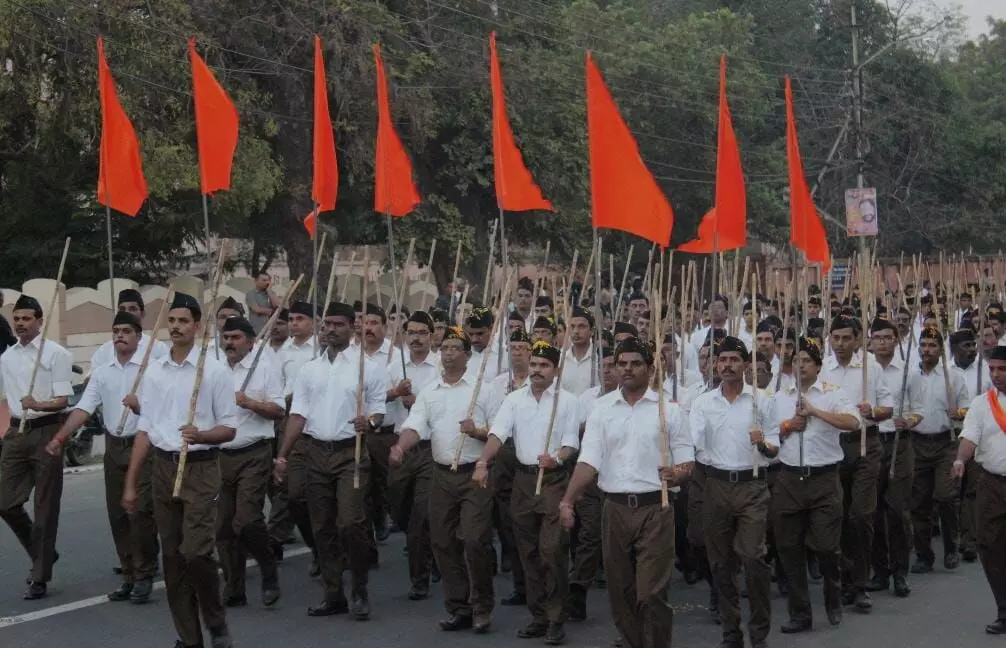
Modi Govt revokes ban on Govt employees participating in RSS activities
text_fieldsThe Indian government's recent decision to lift a decades-old ban on government employees participating in Rashtriya Swayamsevak Sangh (RSS) activities, following a purported government order posted by Congress leaders on social media, has sparked a political uproar.
The order, dated July 9 and issued by the Ministry of Personnel, Public Grievances, and Pension, referenced previous office memoranda from 1966, 1970, and 1980 that had explicitly barred government employees from associating with the RSS. The new directive suggests that these instructions have been reviewed and that the specific mention of the RSS will be removed.
This development has led to a war of words between the ruling BJP and the opposition Congress. BJP IT department head Amit Malviya defended the government's move, labelling the original ban as "unconstitutional" and a remnant of an era that unfairly targeted the RSS. He praised the Modi administration for rectifying what he described as a historical wrong.
On the other hand, Congress leaders, including General Secretary Jairam Ramesh, have criticized the decision. They highlighted the historical context of the original ban, instituted by then Home Minister Sardar Vallabhbhai Patel following Mahatma Gandhi's assassination in 1948.
Although the ban was later lifted in guarantees of good conduct, restrictions on government employees' involvement with the RSS were reinstated in 1966 due to concerns about the organization's activities, perceived to conflict with the Central Civil Services Conduct Rules.
The Congress contends that the RSS, often seen as the ideological parent of the BJP, promotes a vision of Hindu supremacy and has a history of intolerance towards minorities. They argue that lifting the ban undermines the secular fabric of the Indian state and politicizes the bureaucracy. The party also noted that the restriction had remained in place even during the tenure of former Prime Minister Atal Bihari Vajpayee, a BJP stalwart.
The decision comes at a time of strained relations between Prime Minister Narendra Modi and the RSS. Recent developments have fueled speculations about internal rifts, and some analysts view the revocation of the ban as a move to appease the RSS base amidst growing tensions.
Critics fear that allowing government employees to associate with the RSS openly could lead to increased politicization of the civil service, potentially compromising the neutrality expected of public servants. They warn that this could have far-reaching implications for governance and the implementation of policies across the country.
Supporters of the decision, however, argue that the original ban was anachronistic and discriminatory. They claim that the RSS plays a significant role in national development and social service and that government employees should not be barred from participating in such activities if they choose to do so.
The revocation has reignited debates over the role of the RSS in contemporary India and its influence on the BJP. As the controversy unfolds, it remains to be seen how this policy shift will impact the relationship between the government and its employees, as well as the broader political landscape.





